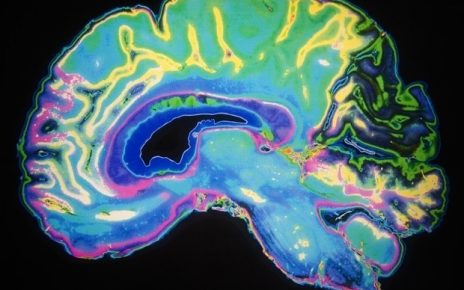Gum disease makes men twice as likely to have difficulty getting an erection, finds study
- Men with erectile dysfunction are also more likely to have gum disease
- Spanish scientists found their results in the first study of its kind on Europeans
- Gum and erection problems are linked to the same molecule made in the liver
- Oral health experts say looking after teeth can improve overall health
9
View
comments
Men with gum disease are more than twice as likely to have difficulty getting an erection, according to research.
Experts say the link works both ways and having either gum disease or erectile dysfunction makes men more likely to develop the other.
In the first study to be done on European men, scientists at the University of Granada in Spain, say both conditions are linked to the same protein made in the liver.
Gum disease is also thought to be linked to heart disease and the researchers suggest it may affect small blood vessels in the penis first, then larger arteries later.
And the study suggests gum disease is a bigger factor in erectile dysfunction than either diabetes or heart disease.
Oral health experts say the study suggests the benefits of taking care of your mouth extend beyond avoiding losing teeth, and the mouth affects other parts of the body.
They say brushing your teeth twice a day and visiting the dentist regularly could help men to avoid gum disease and erectile dysfunction as well.


Men who have gum disease are more likely to develop erectile dysfunction, according to scientists, but it can be avoided by brushing teeth twice a day and visiting the dentist
-
 Fish pedicure warning: Trendy spa treatment caused woman’s…
Fish pedicure warning: Trendy spa treatment caused woman’s…  Humans are still CONSCIOUS when under general anaesthetic:…
Humans are still CONSCIOUS when under general anaesthetic:…  Health officials warn frozen sweetcorn may be behind a…
Health officials warn frozen sweetcorn may be behind a…  Woman, 45, left with a second degree burn after applying…
Woman, 45, left with a second degree burn after applying…
Share this article
Researchers studied 158 men aged between 23 and 69, 80 of whom had erectile dysfunction, and compared rates of gum disease with the sexual problem.
And results show having gum disease, known as chronic periodontisis, gives men a 2.17 times higher chance of having erection problems.
This is a bigger factor than whether the men have diabetes or heart disease, according to the study.
Researchers found the same link in the other direction: almost three quarters of men – 74 per cent – who already have trouble in the bedroom also have gum disease.
However, only 58 per cent of the men without erection trouble had the oral health problem.
Most adults have some degree of gum disease
Gum disease – periodontisis – is when the tissues supporting the teeth swell and become sore or infected because of a build-up of bacteria in the mouth.
It is very common and the NHS says most adults have it to some degree, but if it is not treated the disease can worsen and result in tooth loss.
Finding blood on your toothbrush or in the toothpaste you spit out after brushing is a common symptom of the condition.
Your gums may also bleed when you eat, leaving a bad taste in your mouth.
In response to the study, dental charity the Oral Health Foundation says the benefits of taking better care of your gums extend beyond just having a healthy mouth.
‘This may be a wake up call for men to look after their oral health’
Its CEO Dr Nigel Carter said: ‘As startling as these findings may be, it may turn out to be a wake-up call for men to start paying greater attention to their oral health, particularly their gums.
‘In recent years, gum disease has been linked with conditions like diabetes, stroke and heart disease.
WHAT IS IMPOTENCE?
Erectile dysfunction, also known as impotence, is when a man is unable to get or maintain an erection.
It is more common in the over-40s but affects men of all ages.
Failure to stay erect is usually due to tiredness, stress, anxiety or alcohol, and is not a cause for concern.
However, it can be a sign of an underlying medical condition such as high blood pressure or cholesterol, side effects of medication, or hormonal issues.
Lifestyle factors than can affect the condition include obesity, smoking, cycling too much, drinking too much, and stress.
Source: NHS Choices
‘But an increased risk of coming up short in the bedroom may be the final straw for men who might have been reluctant to spend a little extra time looking after their gums.’
Erectile dysfunction is also a common condition and affects most men occasionally, although in some it may become a chronic problem which needs addressing.
It happens when a man cannot get or maintain an erection in order to have sex, and may be caused by stress, tiredness or underlying medical problems such as heart disease, diabetes or – as this study suggests – gum disease.
‘Gum disease is treatable and preventable’
‘Fortunately, gum disease is an entirely preventable and treatable disease but avoiding it and lowering the risk of poor performance in the bedroom requires an effective and consistent oral health routine,’ Dr Carter adds.
‘Brushing twice a day with a fluoride toothpaste, cleaning in between your teeth once a day using interdental brushes and maintaining regular visits to the dentist are the best way to avoid or treat gum disease.
‘It takes a relatively small amount of time to give your teeth and gums the care they need and falling short of that can really leave you in a difficult position later in the day.’
Erection and gum problems caused by same molecule in the liver
Scientists suggest the reason gum disease and erectile dysfunction are linked is because both are linked to a protein called CRP, which is produced by the liver.
CRP is a sensitive molecule associated with inflammation and infection, and high levels of it is thought to be a risk factor for heart disease.
In the study CRP levels were higher among men who had gum disease and/or erectile dysfunction than in those without the health problems.
Men with CRP also had a higher level of heart disease – the researchers suggest the molecule may affect smaller blood vessels first, such as those in the penis, then moves onto larger arteries to cause damage in heart disease.
The scientists’ findings were published in the Journal of Periodontology.
Source: Read Full Article



